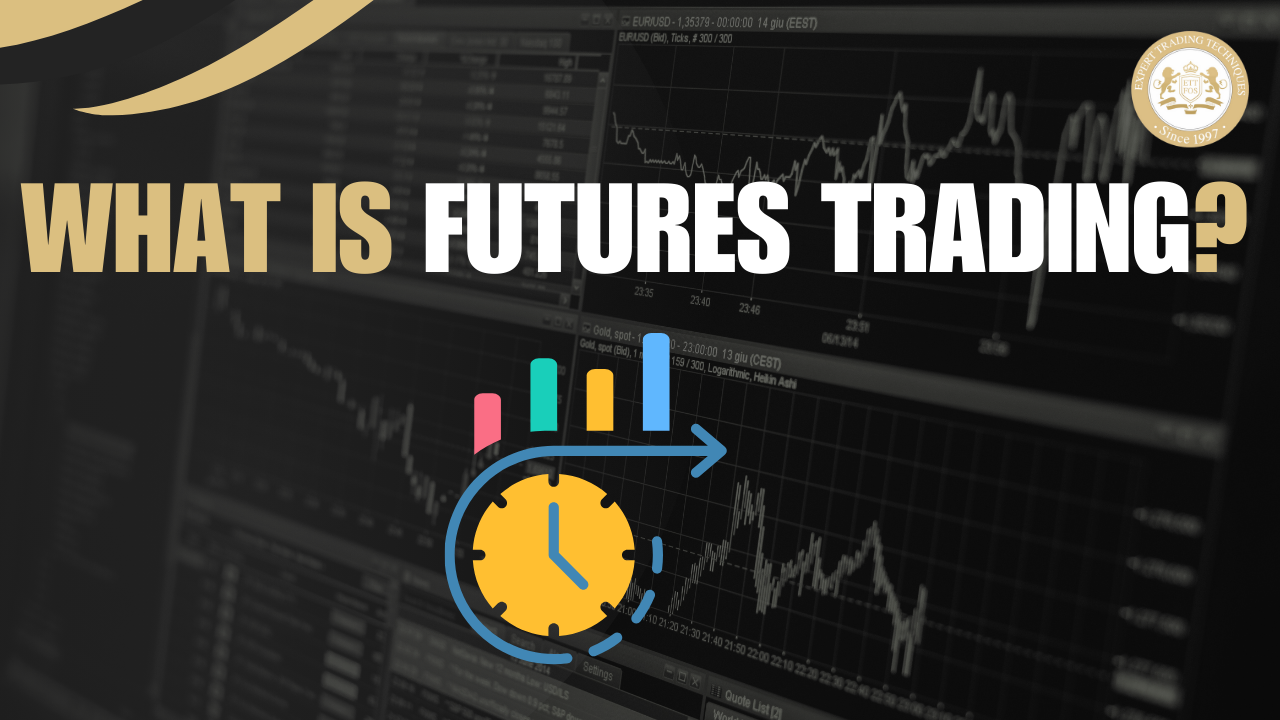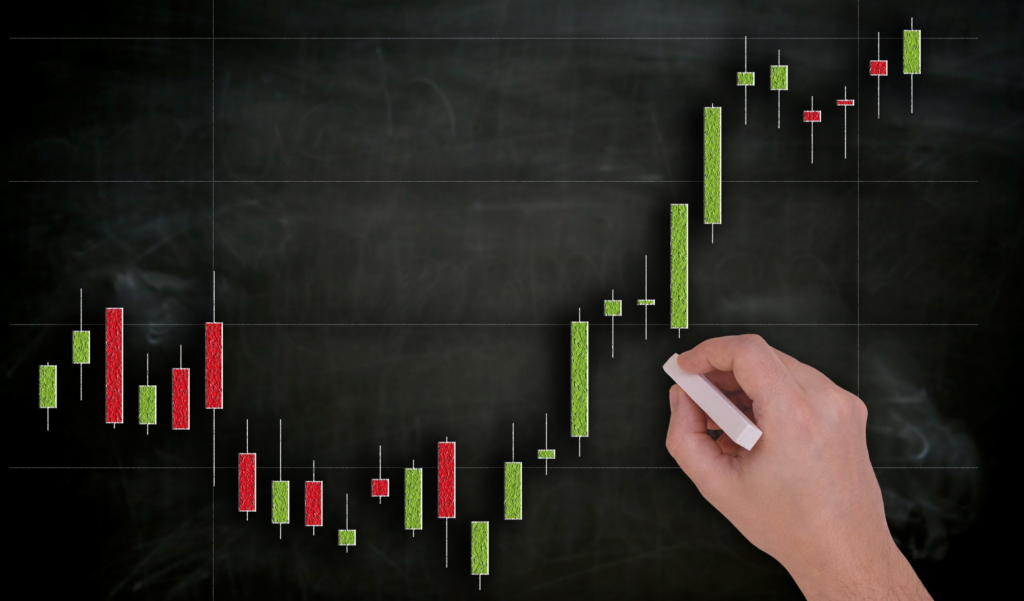
Futures trading is like making a bet on what will happen to the price of an asset, such as oil, gold, or even stock indices, at a specific date down the road. It’s a tool used by businesses and investors alike to manage risks or speculate on price movements.
Having been in the trading world for many years, I’ve seen how futures can offer both opportunities and challenges. Whether you’re looking to safeguard against price changes or aiming to profit from market movements, understanding futures trading is essential for making informed decisions.
Think of futures trading as setting up a future plan with today’s knowledge. It’s a bit like having a crystal ball for your financial decisions, predicting where prices might go and making strategic moves based on those predictions. Let’s gain insights into how this all works and how you can use futures to your advantage.
Also Read: How to Create a Winning Forex Trading Plan

Futures trading involves buying and selling contracts that agree to deliver or receive an asset at a specific price on a future date. It’s like making a deal today to buy or sell something later. Here’s a simple way to think about it, imagine you’re a farmer who grows wheat. You worry that wheat prices might drop by the time you harvest. So, you make a deal now to sell your wheat at today’s price for delivery in a few months. This is a futures contract. You’ve locked in your selling price and protected yourself from future price drops. Futures contracts are used by both traders and businesses. Traders might use them to bet on price changes, hoping to make a profit. Businesses use them to manage risks, like the farmer securing a price for his wheat.
Also Read: Crypto Mining Vs Crypto Trading
In futures trading, the “underlying asset” is the specific item or financial instrument that the futures contract is based on. Here’s a simple breakdown of the main types of underlying assets you might encounter:
Also Read: Common Mistakes In Intraday Crypto Trading

Futures trading might seem complex at first, but it boils down to a simple idea: making agreements to buy or sell something at a set price in the future. Here’s a straightforward breakdown of how it all works:
When you enter a futures trade, you agree to buy or sell an asset like oil, gold, or a stock index at a specific price on a future date. This agreement is detailed in a futures contract, which specifies what you’re trading, the amount, and when the transaction will happen.
You can buy (go long) or sell (go short) futures contracts based on what you think will happen to the price of the asset. For example, if you believe oil prices will go up, you might buy an oil futures contract. If prices do rise, you can sell the contract later at a profit.
Futures contracts are traded on specialized futures exchanges, like the CME Group or ICE. These exchanges provide a marketplace where buyers and sellers meet. To trade, you need a broker who facilitates your orders and executes trades on the exchange.
To trade futures, you don’t need to pay the full value of the contract upfront. Instead, you put down a margin, a small percentage of the contract’s total value. This margin acts as a security deposit. Leverage allows you to control a larger position with a smaller amount of money, but it also means your potential losses can be greater.
At the end of the contract, you can settle your position in one of two ways:
Also Read: Swing Trading in Crypto
Futures trading offers both benefits and drawbacks. With careful planning and a good understanding of the market, you can make the most of its advantages while minimizing the drawbacks. I have made the simple table to help you understand the pros and cons.
| Pros | Cons |
|---|---|
| Leverage: Control large positions with small capital. | High Risk: Significant potential losses due to leverage. |
| Liquidity: Easy to enter and exit trades quickly. | Complexity: Requires understanding of detailed concepts. |
| Diversification: Access to a broad range of assets. | Costs and Fees: Commissions and fees can add up. |
| Hedging: Protects against price fluctuations. | Potential for Overtrading: Frequent trading can lead to higher costs and mistakes. |
Also Read: Swing Trading in Forex
Futures trading offers several unique advantages that make it an attractive option for many traders and investors. That’s why you might consider trading futures:
When you trade futures, you don’t have to worry about overnight funding charges. Unlike some other trading options where you’re charged interest for holding positions overnight, futures contracts are settled daily. This can help you save on additional costs and manage your trading expenses more effectively.
Futures markets are known for their deep liquidity, meaning there are always buyers and sellers ready to trade. This high liquidity makes it easier to enter and exit positions quickly without significantly impacting the market price. It’s like having a large pool of potential trading partners, ensuring you can execute your trades efficiently.
One of the biggest advantages of futures trading is the ability to use leverage. With leverage, you can control a large position with a relatively small amount of capital. This means you can potentially achieve higher returns on your investment. However, remember that leverage also increases risk, so it’s important to use it wisely.
Futures trading allows you to take both long and short positions. This means you can profit from rising prices (going long) or falling prices (going short). It offers flexibility to adapt to various market conditions, making it a versatile tool for different trading strategies.
Futures are a great way to hedge against potential losses in other investments. If you have an existing position in a stock or commodity, you can use futures contracts to protect yourself from unfavorable price movements. It’s like buying insurance for your investments, helping to manage risk more effectively.
Futures markets cover a broad spectrum of assets, including commodities, financial instruments, and more. This variety allows you to take positions in a wide range of markets and sectors, offering opportunities to diversify your trading portfolio and explore new areas.
Also Read: Techniques to Manage Emotions in Forex Trading

Let’s walk through a simple example to see how futures contract trading works in action. Imagine you’re a trader who believes that the price of coffee is going to rise in the next few months. To take advantage of this, you decide to trade a coffee futures contract. Here’s how it would go:
Also Read: Energy Trading
Navigating the world of futures trading involves understanding both the rules set by regulators and following best practices to ensure smooth and ethical trading. Here’s a quick guide to the regulatory environment and key best practices:
There are two regulatory bodies. First is Commodity Futures Trading Commission (CFTC) This U.S. agency oversees futures markets to ensure they operate fairly and transparently. It sets rules and monitors trading to prevent fraud and manipulation. Second is National Futures Association (NFA). It’s a self-regulatory organization that works alongside the CFTC. It sets standards for brokers and traders and provides resources to help ensure compliance.
Regulations help keep the markets orderly and protect traders from unfair practices. They ensure that everyone follows the same rules, which helps maintain market integrity and investor confidence.
Also Read: Psychological Traits of Successful Traders

For a successful trading experience, focus on clear strategies and disciplined execution. Let me tell you some of the best practices you can follow-
Also Read: Common Terminologies Used In Stock Market
In this article, we’ve covered the essentials of futures trading, from understanding what futures contracts are and how they work, to the different types of futures and the key benefits and risks involved. We’ve also highlighted the importance of regulations and best practices to ensure smooth and ethical trading.
Grasping the fundamentals of futures trading is crucial for anyone looking to invest or trade in this dynamic market. Whether you’re interested in leveraging opportunities, managing risks, or exploring various asset classes, a solid understanding of futures can help you make informed decisions.
To deepen your knowledge, consider exploring further resources, such as educational materials and market analysis. ETTFOS.COM offers comprehensive courses and valuable insights to help you on your trading journey. You can also sign up for our newsletter to stay updated with the latest trading tips and market trends.
Also Read: The Benefits of Using Volume Profile in Your Trading Strategy
Futures contracts obligate the buyer to purchase or the seller to sell the underlying asset at a future date, while options contracts give the buyer the right, but not the obligation, to buy or sell the asset. Futures typically have higher risk due to the obligation to complete the trade, whereas options offer the flexibility to not exercise the contract.
Yes, beginners can trade futures successfully with proper education, practice, and risk management. It’s crucial to start with a solid understanding of the market and trading strategies.
Futures contracts expire on a specified date, which is the last day for trading the contract. At expiration, the contract may be settled either by physical delivery of the asset or by cash settlement, depending on the contract terms.
Futures trading can have specific tax implications, including potential eligibility for favorable tax treatment under Section 1256 of the IRS code, which allows for a 60/40 split of long-term and short-term gains. Consult a tax advisor for personalized advice.